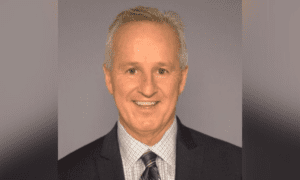Adjunct professors, the ‘backbone’ of higher education, push for better wages and benefits – USA TODAY

This story was published in partnership with The 19th, a nonprofit, nonpartisan newsroom reporting on gender, politics and policy.
Nicole Braun has earned too little as a working single mom to save for retirement. At times, she’s used government assistance to get enough food to eat and a place to live. She’s cleaned houses and walked dogs to earn extra cash, and she’s never had a job that provided health insurance.
Most people who know the 54-year-old Chicagoan don’t suspect she’s struggled this much financially, Braun said. After all, she has two master’s degrees and an occupation that many assume makes her middle-class.
She’s a part-time professor.
“A lot of adjuncts like myself have a whopping student loan debt, and not only are we making poverty wages, we have no health benefits typically,” said Braun, who teaches sociology at one community college and three universities. “We have no retirement plan. We work multiple jobs, and we’re completely disposable.”
A new study about part-time professors by the American Federation of Teachers bears this out. In 2020, the union surveyed about 1,900 adjuncts, also known as contingent faculty. These part-time professors often lack the advantages of being full-time faculty such as competitive wages, health benefits, retirement plans and job security. Many contingent faculty do not have their own offices and work at multiple colleges to ensure they teach a full load of classes each term.
Although 90% of these educators have at least a master’s degree, 60% make less than $50,000 per year, according to the federation report. Almost a quarter bring home less than $25,000 annually, below the federal poverty line for a family of four. Adjuncts also often go uncompensated for the routine tasks that come with the job – prepping for classes, holding office hours, writing recommendation letters and serving on committees, the union’s study found.
“Adjunct teachers, basically, are the backbone of our colleges and our universities,” said AFT President Randi Weingarten. “Four in 10 of them need government assistance to get by. That tells you a huge amount about priorities in this country, and how we do not prioritize knowledge and innovation, creativity and critical thinking or the academic foundations of America.”
With women of all racial backgrounds and people of color less likely to be hired for full-time tenure-track positions, adjuncts overwhelmingly belong to groups traditionally marginalized in higher education. About 64% of the AFT study respondents were women; other studies have also found that women make up the majority of adjuncts. Thirty-one percent were men, 1% were gender nonconforming, and the remainder were transgender or did not disclose their gender identity.
By relegating educators from underrepresented groups to adjunct roles, colleges and universities uphold the racial, gender and class hierarchies that have fostered inequities in academia historically, adjuncts and their supporters say. The AFT estimates that 47% of faculty hold part-time positions. They’re necessary for colleges and universities to function, adjuncts told The 19th, but they remain an invisible and permanent underclass in academia.
“People don’t understand what’s happening, so the school districts, the administration and the state, which funds us, haven’t really had to do anything because there’s no pressure,” said Bobbi-Lee Smart, a Los Angeles-area adjunct who helped draft the AFT report. “They’re saving tons of money by hiring people to teach classes at half or less the rate and then not having to pay for benefits or anything else. So, it saves states a lot of money, but there’s also no outrage because no one knows what’s happening.”
But, Smart said, colleges and universities would be in trouble without adjunct faculty: “There’s no way that these places could operate without us.”
By hiring adjuncts, colleges and universities cut salary and benefit costs and, they say, it allows them to offer new courses to students without having to invest in hiring permanent staff. All types of colleges and universities hire adjuncts, but community colleges are especially likely to rely on these part-time staffers. The California Community College system is the nation’s largest, and according to 2019 data from the chancellor’s office, part-time professors comprise, on average, 69% of its faculty.
Paul Feist, vice chancellor of communications and marketing for the California Community Colleges Chancellor’s Office, told The 19th that faculty compensation is determined through collective bargaining at the local level but that the Chancellor’s Office does advocate for additional state budget resources that colleges can devote to part-time faculty, such as funding for part-time faculty office hours. The office is also pushing for increased state funding for health insurance for part-time professors.
As the union with the largest number of adjunct professors, AFT is advocating for a better quality of life for part-time faculty. It has 240,000 higher education members, 85,000 of whom are contingent workers and 35,000 of whom are graduate employees. On March 7, the union announced that it was pursuing a new affiliation with the American Association of University Professors. If the leadership of the 1.7 million-member AFT and the 44,000-member AAUP vote to join forces, the organizations will work together to advocate for their New Deal for Higher Education. This legislative agenda aims to increase government funding to higher education, end the practice of employing low-wage contingent faculty, make education more affordable, protect academic freedom and cancel student debt.
With a $22 billion investment in higher education, the Build Back Better Act would have given colleges and universities more financial resources. The AFT argues that higher education institutions could have used this funding to provide job security for adjuncts and raise their wages, but the legislation has stalled in the Senate. The union hopes that parts of the legislation can be passed piecemeal or incorporated into the reauthorization of the Higher Education Act, a federal law designed to boost the resources of colleges and universities and provide financial assistance for students.
“This is about investing in higher education,” the AFT’s Weingarten said. “This is about investing in knowledge. This is about investing in our democracy. This is about having the promise and the potential of higher ed happening in this country. It’s about having these two very strong organizations actually come together to help us have affordable, accessible higher education for everyone. It’s about making sure that academic freedom and shared governance and tenure is available.”
Weingarten criticized colleges and universities for paying administrators top salaries or reserving millions of dollars for new sports facilities on campuses, while adjuncts struggle to make ends meet. Geoff Johnson, an adjunct professor for 20 years, said that he knows adjuncts who are unhoused or working as bartenders, food delivery drivers or waiters to supplement their income.
“A lot of them are older adjuncts,” said Johnson, who helped draft the AFT report and chairs the union’s adjuncts committee. “It’d be one thing if these guys were young folks kind of enjoying the lifestyle of being footloose and fancy free, but that’s not the reality.”
Sixty-two percent of the adjuncts AFT surveyed are 50 or older. Less than half (44%) of contingent faculty members have health insurance through their employer. Because of health care costs, 64% of survey respondents said they postponed dental checkups during the previous year. Forty-four percent said they did not see a doctor, and 27% said they did not get a recommended medical test or treatment. Ten percent admitted to cutting pills in half or skipping doses of medicine because of their financial situation.
Johnson is more fortunate than most adjuncts because he has received health insurance through the San Diego Community College District for more than 15 years. It came just in time.
“When we got onto the plan, a year after that, my wife had contracted type II diabetes, and there would have been no way we could have afforded the insulin,” he said.
Many adjuncts press on because of the hope that they will one day become full-time professors. But full-time openings are rare. Fifty percent of adjuncts would prefer a tenure-track position, according to a 2018 study.
Adjuncts can refuse to perform duties for which they’re not paid, whether that’s writing curriculum, holding office hours or serving on committees, said Smart, the LA-area adjunct. But, she added, contingent faculty members know that not completing these tasks would hurt their students.
“As long as we keep doing more for less, it’s never going to change,” she said.
She suspects that a major reason contingent faculty earn low pay and benefits is because women tend to serve in these positions.
“A lot of people think that the majority of adjuncts are voluntary, that they have a full-time job somewhere that they’re taken care of, that they’re doing this job on the side,” Smart said. “It’s a woman taking care of her kids, and so she’s doing this when the kids are in school … and getting benefits from her husband.”
Braun agreed. She’s never married and said the idea that adjunct work is a “hobby job” has hurt her professionally. She’s continued working as a part-time faculty member because she loves teaching, her field of study and her students, she said.
“We don’t teach because of the money,” she said. “We teach because we care about society, and we care about justice. But, obviously, I do feel like everybody deserves a living wage.”
As she approaches her 55th birthday, Braun said that it hurts to see people her age achieving goals that have eluded her. They’ve paid off their student loans, bought homes and take the occasional vacation, she said.
Meanwhile, Braun continues to juggle adjunct jobs and side hustles. Retirement is out of reach for her, and she’s not alone. AFT reports that 37% of adjuncts surveyed cannot imagine how they’ll retire.
Laughing, Braun said, “My retirement is death.”






